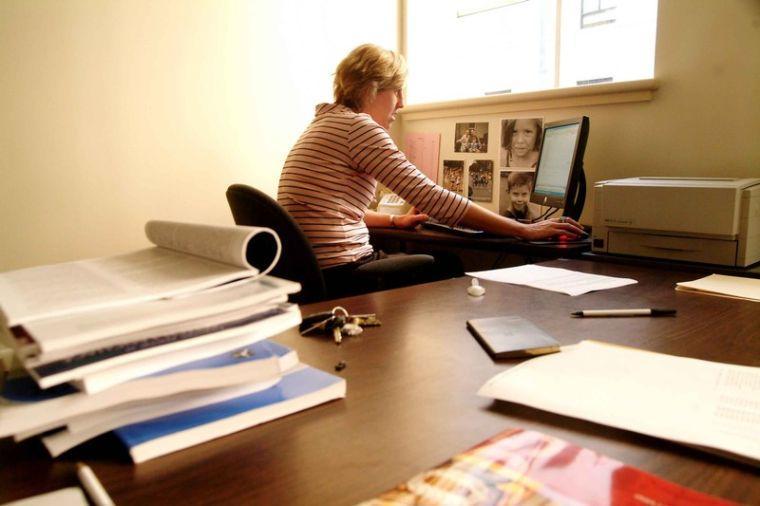The last audiology graduate students will leave the University in May, taking the program and the majority of the hearing clinic with them.
Changes in requirements and a lack of professors will force the Communication Sciences and Disorders Department to remove its master’s degree in clinical audiology. In the future, students interested in practicing as audiologists will have to go to the LSU School of Medicine in New Orleans or Louisiana Tech University to get graduate degrees.
New standards require that practicing audiologists earn a doctor of audiology degree — or Au.D. — instead of just a master’s.
The department will maintain its undergraduate program in communication science and disorders, which incorporates some audiology training. It also will keep the Ph.D. program, which is designed for students who want to become professors and researchers, not practitioners.
Although University officials say a combination of factors contributed to the decision to remove the program, the most crucial was the 2003 Au.D. requirement from the American Speech-Language-Hearing Association Council on Academic Accreditation.
College of Arts and Sciences officials decided not to apply as a host for the Au.D. program and to end the clinical audiology graduate program altogether.
No faculty
Paul Hoffman, the department of communication sciences and disorders chairman, said that when the association changed the requirement, the Louisiana Board of Regents investigated which universities in the state should host the new Au.D. program.
LSU initially applied to host the program but withdrew its application because the department lacks the professors to teach the doctoral classes.
Guillermo Ferreyra, dean of the College of Arts and Sciences which contains the audiology program, said it is hard to find audiology professors with Ph.D.s because of competition with private practices.
Hoffman said few people want to research and teach because they can make more money as practicing audiologists.
In fact, the department has only two audiology professors now — and one will retire in May — leaving Assistant Professor Shaum Bhagat, who earned his Ph.D. in 2003, in charge.
But Bhagat is not worried.
He said undergraduate students studying communication disorders still will have to complete some clinical audiology instruction and learn to use the audiology equipment and facilities, he said.
Bhagat also said students interested in earning a Ph.D. to become an audiology professor can do so under his instruction.
Recent graduate Adam Hogan wanted to do just that but ran into some problems.
Hogan finished his master’s degree in speech-language pathology in May 2004 and decided he wanted to continue toward a Ph.D. in audiology. He immediately enrolled in a summer course with Bhagat, but Hogan said he became concerned when he was one of two people in the entire class.
He also said three of the classes he needed in the fall were dropped because of low enrollment.
“They told me I could do independent study, but part of the doctorate program is getting input from professors,” Hogan said. “So that’s when I took the hint and left.”
Hogan said he thinks the audiology program just lacks the draw — and part of that is due to the lack of an Au.D. degree.
Long-term plan
The dean’s plan is to rebuild the program in the coming years.
“Maybe in a couple of years — the idea is to have four or five research faculty,” Ferreyra said.
Last year, many in the department thought that day had arrived when rumors circulated that the college was hiring a new audiology professor from Southwest Missouri State University in Springfield, Mo. Department employees said they heard the new professor had experience starting an Au.D. program at another university and said they thought department officials planned to utilize her to attract more audiology professors.
But negotiations fell through along the way.
“I don’t think I want to go into that,” Ferreyra said. “I don’t think negotiations should be public.”
Executive Vice Chancellor and Provost Risa Palm, who was involved in the hiring process, echoed Ferreyra’s comments, saying it was a personnel matter and not public business.
But Bhagat said the department’s audiology clinic may stay open, even after the May graduates leave.
The hearing portion of the clinic provides hearing services and testing procedures.
Hoffman also said the department recently met with clinical audiology administrators at the medical center in New Orleans to discuss setting up a collaborative program that would combine the University’s program with the medical center’s program.
He said that although it may take years to arrange, the department will try to set up an internship program at the Baton Rouge Clinic so the Au.D. students in New Orleans could get a year’s worth of experience and the clinic could stay open.
Audiology Instructor Michelle Smith seemed optimistic.
She said she is not as worried about the clinic shutting down as she was a year ago. She also said the collaboration with LSU medical center in New Orleans could save the department.
“I don’t know what’s going to happen,” Smith said. “But [with a collaboration] we could be one of the top programs in the South.”
University drops audiology program
January 24, 2005
University drops audiology program




